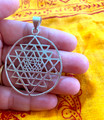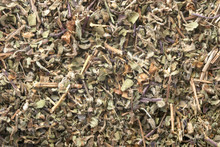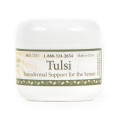 Loading... Please wait...
Loading... Please wait...Categories
- Ashwagandha
- Magnesium
- Turmeric
- Vitamin D
- ASHOKA formulations
- Bone Care
- Creams
- Eyes, Ears, Sinus, Throat
- Immune
- Dosha:Kapha
- Lip balms
- Liver & Kidneys
- Lotions
- Muscles & Joints
- Shampoo & Conditioner
- Pre Biotics and Probiotics
- Stress & Adrenals
- GHEE
- Garcinia
- Protein For Vegans and Vegetarians
- Chutneys & Preserves
- Circulation: Physical and Vibrational
- EVERYTHING ROSE
- Lotions, Creams, & Body Mists
- Shilajit in Formulations
- Guduchi: Transdermal, Transmucosal, & Oral
- Lotions & Body Creams
- Floral Aromas, Incense, Air Freshener, Body Mist
- Ayurvedic Pet Care
- Baby & Children
- Bath, Soaps & Deodorants
- Body Massage Oils
- Cellulite & Skin Care
- Colon Care
- Cooking, Spices, Condiments, & Oils
- DETOX
- Cough & Cold
- Digestion
- ONLINE Courses, Audio, and Printed Materials
- EMF Management
- Emotional Support & Balance
- Eye & Vision
- Fat & Sugar Metabolism
- Gift Baskets
- Hair Care
- Herbal-Memory Nectars
- Herbal Teas/Coffee Substitutes
- Home (Air Fresheners & Laundry)
- Hormonal Modulation for her & for him
- HP Herbal Nectar Drops
- Immunity & Health
- Individual Herbs & Spices
- Lalita’s Skin & Beauty
- Men’s Health & Shaving
- Mind & Mental Stress Support
- Moringa
- Multi-Minerals
- Oral Care - SVADANTA
- Silver Gift Items
- Sinus Care & Nasya (Nasal) Oils
- Sleep
- Stress Management
- SVA Samadhi with Marma
- Tablets and Capsules
- Transdermal Creams
- Tulsi
- Tridoshic Pain Management
- Vit D, B12, Magnesium, ALA, CoQ10
- Travel Sample Sizes & Starter Kits
- Wild Amla & Chyawanprash
- Women's Health
New Products
Our Newsletter
- Home
- Individual Herbs & Spices
- Tulsi Leaf
Product Description
Latin names: ocimum santum or ocimum tenuiflorum. Sanskrit name: tulasi. English name: holy basil.
Tulsi is a very subtle and powerful Ayurvedic herb. It is good for immunity, because it strengthens digestion (dipani) and it kills harmful bacteria (bhutaghni). It is good for the liver because it stimulats the bhutagnis (burners of the liver), and it helps the mind by nourishing the medhagnis (knowledge processing ability of the brain).
It is also good for the heart (hridya) because it creates a strong vibrational connection to God. In spite of the fact that tulsi is heating, which would normally aggravate the sadhaka pitta of the heart, tulsi is able to strengthen the heart due to its divine vibrational energy.
The greatest strength of tulsi is without doubt its divine energy. It is described as surasa (liked by the gods) and devadundubhi (having divine vibration).
Learn The Story of Tulsi with Vaidya Mishra
There is a story of how a very pure girl became the tulsi plant. In Vaiyda Mishra's 23 minute audio lecture on tulsi for only 99 cents, you can learn the whole story, which explains why this herb has such divine properties
In this MP3 download, you will not only learn the story of tulsi, but will learn many of the important properties of this herb, as well as its uses, according to the ancient Ayurvedic text, Bhava Prakash.
Preserving the Divine Vibration of Tulsi
The vibration of tulsi must be delivered fully intact if the body is going to derive benefit from this divine herb. Tulsi is commonly available in teas and supplements from many sources today, but the purity of tulsi's vibration is not always carefully preserved. Mass production of tulsi products can easily damage the divinity of the herb.
Tulsi is extremely sensitive to negative vibrations in the environment. It will not grow in a house where there is too much rajas (desire and anger) or tamas (inertia and dullness). When a herb like tulsi is grown for production, the environment of the tulsi must be pure.
The workers must be good people, leading pure lives. The drying and storage of the leaves must be done in a vibrationally pure place.
The result of bad practice, when growing, storing or using tulsi, is that the divine vibration of the plant can be destroyed. Also, if tulsi leaves become too old, they lose the strength of their divine vibration over time.
Vaidya Mishra is very careful to preserve the vibration of tulsi at every step of production. The dried tulsi leaves that you will find in this packet are full of the divine energy of the living plant.
A Caution About Tulsi
As divine as this plant is, tulsi has ushna virya (heating thermogenic property) and katuka rasa (pungent taste) and dipani prabhava (digestive flame stimulation property). If you are prone to high pitta, this herb should be used carefully. It should be combined with other balancing herbs like DGL or fennel, and infused in small quantities with a large amount of water.
To be extra safe, you can use the Tulsi Herbal Memory Nectar, which removes most of the heat of this herb and delivers only the divine vibration to the body. Or you can use Tulsi Transdermal Cream, which also does not contain so much of the heating physical properties of tulsi.
In addition to heating the body, tulsi can cause a detoxification of the liver due to its tikta rasa (bitter quality) and dipani prabhava (flame enhancing quality). If you notice signs of a detox crisis (rash, pimples, diarrhea, dizziness, excessive heat in the body), please discontinue using tulsi and check with your Shaka Vansya Ayurveda practitioner and your physician.
Finally, the divine nature of tulsi can be disturbed if there are lots of toxins in the liver. When you use the leaves, they must be digested and metabolized, which includes being processed by the liver. If the liver is full of acidic toxins, then the divine nature of tulsi will be damaged and the effectiveness of the herb will be minimized.
Ingredients
Grade A wildcrafted tulsi leaf
Packet Size
1 oz.
Directions
Add one pinch of tulsi to your one or two liters of herbal tea mixuture given to you by your Shaka Vansya Ayurveda practitioner and sip throughout the day.
Use under the guidance of a Shaka Vansya Ayurveda practitioner. As with all herbs, please consult with your physician before using.
Tulsi In Our Herbal Products
- Contains only the subtlest essence of the tulsi (the herbal memory).
- Bypasses the liver, which may be in poor shape due to modern lifestyle, and delivers the prabhavas (special qualities) of tulsi directly to the tissues. If the liver is full of toxins, the divine quality of tulsi will be destroyed when it passes through the liver. This is not the case with this herbal memory nectar, which does not go through the liver.
- Does not heat the body like tulsi normally does.
- Travels quickly, without delay of digestion and begins acting right away.
- Should be added to 1 to 2 liters of cool, neutral pH spring water and sipped throughout the day.
- The seeds of tulsi are used in certain cases instead of the leaves, according to the specific instructions of your Shaka Vansya Ayurveda practitioner.
- Can aggravate pitta and cause burning in the body, if you already have high pitta.
- The liver must not have a lot of toxins which can damage the divine quality of tulsi before it reaches the rest of the body.
- Contains the full power of tulsi in tablet form.
- Requires that the liver be fairly clean. If toxins are present, the divine nature of tulsi will be damaged and the effectiveness of the herb will be compromised.
- Can heat the body and aggravate pitta.
- Tastes delicious.
- Contains tulsi with the balancing effect of five other herbs.
- Requires that the liver be clean. If toxins are present, the divine nature of tulsi will be lost.
- Is a great way to use tulsi even if the liver is full of toxins.
- Bypasses the liver and delivers tulsi directly to the cellular systems through the skin.
- Is great to use before meditation.
- Does not heat the body the way tulsi usually does.
The Following Products Contain Tulsi as an Ingredient
- Tea Lover's Gift Basket
- Brahmi Chetana Gift Basket
- Divine Channel Opening Gift Basket
- Samadhi Set
- Super Samadhi Set
- Gluco-Support Tablets
- Immuno-Correct Tablets
- Liver Pro Tablets
- Deep Meditation Herbalized Soap
- Fatigue Formula Tablets
- Kidney Prana Herbal Memory Nectar
- Vidanga Herbal Memory Nectar
- Sadhaka Balance Tablets
- Vidanga Sinus Oil
- Herb Rich Hail Oil
- Cough 'n Cold Transdermal Cream
- Immunity Support Kit
- Herb Rich Shampoo
- Herb Rich Conditioner
Disclaimer
This product and statements have not been evaluated by the FDA (Food and Drug Administration) and are not intended to be used to diagnose, treat or cure any disease. All of the information above is intended for educational purposes only and may not be used to replace or complement medical advice.















